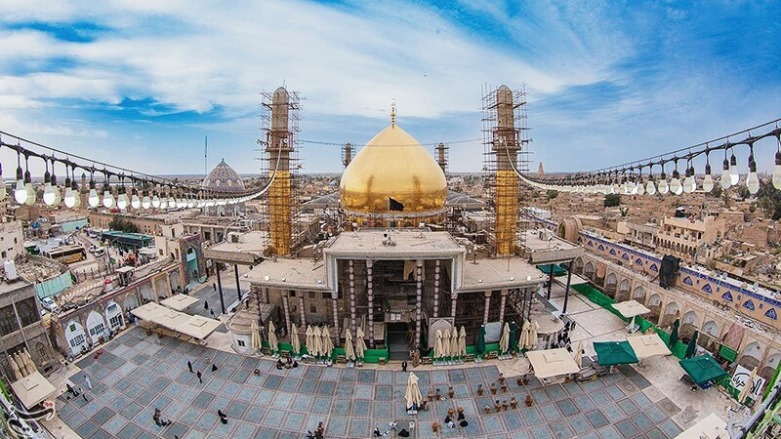Iraq gives 7 year sentences for scam involving famed Al-Askari Shrine

ERBIL (Kurdistan 24) – A Baghdad court has issued an arrest warrant and a seven-year sentence in absentia for two unnamed public employees who caused “monetary damage” in the amount of 250 million Iraqi Dinars (just under $210,000) in a real estate deal involving Iraq's well-known Al-Askari Shrine.
Built in the tenth century in the city of Samarra, the shrine is one of the holiest sites in the world for Shia Muslims. Its bombing in early 2006 by a group affiliated to al-Qaeda shocked the nation and is seen as a major downward turning point in Iraq's post-2003 sectarian conflict.
Workers completed renovation on the shrine, including its characteristic golden dome and minarets, in 2009.
According to a statement released by the office of the Inspector General of the Iraqi Ministry of Justice, the two employees from the Department of Real Estate Registration conspired with “other defendants” to expand the property of the shrine, wrongfully appropriating public property into land managed by the Shia Endowment (Waqf), which manages Shia religious sites in Iraq.
“The damage was the result of the addition of an area of 100 square meters to the area of a property owned by the Shia Waqf undertaking an expansion project on the holy Al-Askari Shrine by changing the property size from 244 to 344 square meters,” the statement explained.
"The employees with other defendants caused a monetary damage of IQD 250 million to public property.”
The Inspector General pointed out that “the court issued a sentence in absentia to imprison the convicts for seven years, an arrest warrant, and the seizure of their movable and immovable properties,” adding that the Shia Endowment can retain the property on the condition that it and the Department of Real Estate Registration compensate the government.
Editing by John J. Catherine
